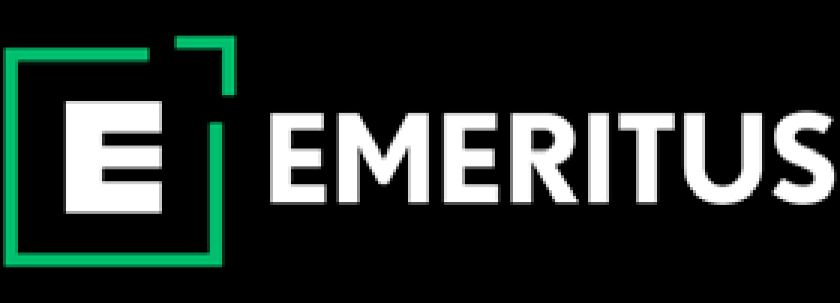What is Human Resource Management? Meaning, Objectives and Rewarding Career Opportunities

- What is Human Resource Management (HRM)?
- Core Functions of Human Resource Management
- Why Human Resource Management is Essential
- Types of Human Resource Management Strategies
- Digital Tools in Human Resource Management
- Compliance and Legal Aspects of HRM
- Metrics and Analytics in HRM
- Job Roles in Human Resource Management and Their Salaries
- Common Challenges in Human Resource Management
As small businesses turned into enterprises or organizations employing a large number of people, the process of employment also became structured and standardized, which is referred to as human resource management or human capital management in the corporate world.
What is Human Resource Management (HRM)?
To answer the question, what is human resource management, let’s start by picturing HRM as the engine that powers organizational success. In today’s business landscape, human resource management has grown from merely a support function to a strategic partner essential for meeting a company’s goals. But what is human resource management in practical terms? Essentially, it’s the science and art of managing people effectively, ensuring they are aligned with the organization’s objectives while fostering a work environment where everyone can thrive.
In this guide, we’ll break down what is human resource management by exploring its core functions. We will discuss why HRM is crucial for any organization, and outline the emerging trends that are reshaping the HR landscape.
Human Resources Courses
Core Functions of Human Resource Management
If you’re curious about what is human resource management, it’s essential to understand the key functions HRs perform to keep businesses running smoothly. Below is a breakdown of HR’s core functions and how they contribute to the big picture.
1. Recruitment and Selection
At the heart of what is human resource management lies recruitment, the process of attracting and selecting the right people for the right roles. Recruitment goes beyond just filling positions; it’s about finding candidates who fit the company’s culture and values. Here’s a closer look at how recruitment and selection work:
| Recruitment Step | Description |
| Job Analysis | Defining the job role, responsibilities, and qualifications. |
| Sourcing Candidates | Attracting potential hires through job postings, social media, and referrals. |
| Screening | Filtering resumes, conducting initial interviews, and assessing candidates’ fit. |
| Interviewing | Conducting in-depth interviews to gauge skills, cultural fit, and long-term potential. |
| Selection | Choosing the best candidate based on assessments, background checks, and references. |
Recruitment and selection are foundational to what is human resource management because hiring the right talent impacts the organization’s productivity, morale, and overall success.
Best Human Resources Courses
2. Training and Development
Another vital component of what is human resource management is the training and development function. Training equips employees with the skills needed for their current roles, while development prepares them for future responsibilities. These programs are not only beneficial for employees but also directly impact the organization’s competitive advantage. Here’s how HR facilitates learning:
- Onboarding: Introducing new hires to the company’s culture, policies, and values
- Skill Development: Offering workshops, courses, and certifications to boost job-related skills
- Leadership Development: Training programs for high-potential employees to prepare them for leadership roles
- Continuous Learning: Encouraging employees to pursue personal and professional growth, keeping skills up-to-date
With an effective training and development strategy, organizations can better retain employees and remain agile, making it a key aspect of what is human resource management.
ALSO READ: The role of HR Function in the new world order!
3. Performance Management
Performance management is crucial in defining what is human resource management because it aligns individual goals with organizational objectives. Through performance reviews, regular feedback, and goal-setting sessions, HR ensures that employees stay motivated and perform at their best.
- Goal Setting: Establishing clear, achievable objectives for employees
- Feedback: Regularly assessing progress and offering constructive feedback
- Performance Appraisal: Conducting formal evaluations to recognize achievements or identify improvement areas
By focusing on performance management, HR reinforces accountability and creates a culture of continuous improvement.
4. Compensation and Benefits
The topic of what is human resource management wouldn’t be complete without discussing compensation and benefits, which play a significant role in attracting and retaining talent. HR professionals design compensation structures that are competitive and fair, ensuring employees feel valued.
| Compensation Type | Description |
| Salary | Base pay is determined by job role, skills, and experience. |
| Bonuses | Additional pay based on performance metrics or company success. |
| Benefits | Health insurance, retirement plans, paid time off, and other perks. |
| Equity or Stock | Offering ownership in the company, which is common in start-ups. |
Compensation and benefits not only attract talent but also influence job satisfaction and loyalty, further emphasizing what is human resource management as a driver of organizational success.
5. Employee Relations
The final core function in understanding what is human resource management is employee relations. It focuses on building a positive work environment, fostering strong and open relationships. HR plays a key role in resolving conflicts, promoting inclusion, and ensuring every employee feels respected.
- Conflict Resolution: Addressing disputes professionally to maintain harmony
- Employee Engagement: Creating initiatives that make employees feel valued and motivated
- Diversity and Inclusion: Ensuring all employees are treated fairly, regardless of gender or background
Employee relations is all about making the workplace a safe, enjoyable, and productive space for everyone, which is central to what is human resource management.
ALSO READ: Employee Stickiness: Everyone Wants to Be Wanted in Some Way or the Other
Why Human Resource Management is Essential
Understanding what is human resource management means recognizing its impact on organizational success. HRM doesn’t just handle hiring or payroll; it drives the entire organizational culture and employee satisfaction. Here’s why HRM is so critical:
- Builds a Positive Work Environment: HRM fosters a workplace where employees feel valued, which directly influences productivity
- Enhances Employee Satisfaction: Through thoughtful policies, HRM increases job satisfaction, leading to higher retention rates
- Supports Organizational Goals: By aligning HR strategies with business objectives, HRM ensures that the workforce contributes meaningfully
HRM’s contributions make a difference at every level, showing that what is human resource management ultimately benefits both employees and the organization.
Types of Human Resource Management Strategies
To fully understand what is human resource management, it’s helpful to explore the different HR strategies organizations use to enhance performance and maintain competitiveness.
| HR Strategy | Purpose |
| Talent Management | Ensuring the right people are in the right roles and are prepared for advancement. |
| Employee Engagement | Fostering motivation and commitment among employees. |
| Diversity Management | Promoting an inclusive workplace where all employees feel respected. |
| Succession Planning | Preparing for future leadership needs by developing high-potential employees. |
Each strategy supports a different aspect of what is human resource management, from building engagement to ensuring long-term leadership continuity.
A. Diversity, Equity, and Inclusion (DEI) in Human Resource Management
An integral part of what is human resource management today is the focus on diversity, equity, and inclusion. DEI initiatives ensure that all employees feel valued, respected, and supported within the workplace.
- Diversity Initiatives: Hiring diverse talent from different backgrounds and communities
- Equity Programs: Ensuring equal opportunities for growth and advancement across all demographic groups
- Inclusion Efforts: Creating a workplace culture where everyone feels a sense of belonging
These DEI programs are crucial to what is human resource management because they not only foster a positive environment but also contribute to innovation and a broader range of ideas within the organization.
B. Employee Engagement and Retention Strategies
When it comes to what is human resource management, engaging and retaining employees is paramount. High turnover can be costly and disruptive, so HRM focuses on creating a workplace where employees want to stay.
- Recognition Programs: Recognizing and rewarding employees for their contributions
- Career Development: Providing opportunities for growth and advancement
- Work-Life Balance: Implementing policies that support flexibility, such as remote work options and flexible hours
Employee engagement is central to what is human resource management because engaged employees are more productive, loyal, and likely to contribute positively to the organization’s culture.
C. The Role of HRM in Crisis Management
In times of crisis, whether it’s a natural disaster or a global pandemic, HRM plays a crucial role in ensuring business continuity and employee well-being. Here’s how what is human resource management functions in a crisis:
| Crisis Management Aspect | HR’s Role |
| Employee Communication | Keeping employees informed and addressing concerns transparently. |
| Safety Protocols | Implementing measures to protect employees’ health and safety. |
| Support Systems | Providing resources like mental health support and flexible work options. |
| Policy Adaptations | Adjusting HR policies to accommodate new challenges, such as remote work. |
HR’s role in crisis management highlights an essential aspect of what is human resource management by showing the proactive support HRs provide to maintain stability.
D. Strategic Workforce Planning
Strategic workforce planning is another critical element of what is human resource management. It involves forecasting the organization’s future workforce needs and developing strategies to meet them.
- Succession Planning: Identifying and preparing future leaders within the organization
- Skills Gap Analysis: Assessing current skill levels and identifying areas for development
- Talent Acquisition Strategy: Develop long-term hiring plans to ensure the right talent is available when needed
By focusing on workforce planning, HRM ensures that the organization is prepared to meet future demands, making it a vital component of what is human resource management.
E. Organizational Development (OD) and Change Management
Organizational development and change management are essential to what is human resource management, especially in today’s dynamic business environment. HRM plays a crucial role in managing organizational change to minimize disruption and help employees adapt.
- Change Management Programs: Offering training and resources to support employees during transitions
- Cultural Transformation: Aligning HR policies with evolving organizational values and goals
- Employee Involvement: Engaging employees in the change process to foster a sense of ownership
HR’s role in OD and change management highlights how what is human resource management goes beyond day-to-day tasks, contributing to long-term organizational resilience.
F. Corporate Social Responsibility (CSR) and HRM
Another aspect of what is human resource management is its involvement in Corporate Social Responsibility (CSR) initiatives. HR often leads CSR programs that engage employees in activities that give back to the community and promote social and environmental responsibility.
- Employee Volunteering: Organizing opportunities for employees to volunteer with local charities or non-profit organizations
- Environmental Initiatives: Encouraging eco-friendly practices in the workplace, such as recycling programs for sustainability
- Diversity and Inclusion in CSR: Ensuring that CSR initiatives promote inclusivity and support diverse communities
CSR programs contribute to a positive organizational culture and help employees feel connected to a broader purpose, which is essential to what is human resource management.
G. The Role of HR in Employee Well-Being and Mental Health
Today, what is human resource management also includes a focus on employee well-being and mental health, which has become a priority in many organizations. HR departments develop and implement initiatives to support employees’ physical and mental health, ensuring a balanced and healthy work environment.
- Wellness Programs: Organizing programs that encourage physical fitness, healthy eating, and stress management
- Mental Health Resources: Providing access to counseling, therapy, and mental health days
- Flexible Work Arrangements: Offering remote work options, flexible hours, and work-from-home policies to promote work-life balance
Employee well-being is an integral part of what is human resource management as it directly impacts productivity, morale, and retention.
H. Conflict Resolution and Mediation in HRM
Another critical component of what is human resource management is conflict resolution. Conflicts in the workplace are inevitable, but effective HR intervention can help resolve issues before they escalate.
- Mediation: Acting as a neutral party to help employees resolve disagreements
- Conflict Resolution Training: Providing employees with skills to handle conflicts constructively
- Grievance Handling: Offering formal processes for employees to report grievances and receive fair resolutions
Conflict resolution is fundamental to what is human resource management as it promotes respect, cooperation, and a positive workplace culture.
ALSO READ: Employee Retention Strategy: Meaning and Benefits
Digital Tools in Human Resource Management
In modern business, understanding what is human resource management requires knowing how technology supports HR functions. HR professionals now rely on digital tools to streamline operations and enhance efficiency. Here are some of the key digital tools transforming HRM today:
| Digital Tool | Purpose |
| HRIS (HR Information System) | Centralizes employee data, automating administrative tasks like payroll and leave tracking. |
| Applicant Tracking System (ATS) | Manages the recruitment process by tracking applicants from application to hiring. |
| Learning Management System (LMS) | Provides a platform for employee training, skill development, and compliance courses. |
| Employee Engagement Software | Measures and enhances employee satisfaction and engagement. |
These digital tools are now integral to what is human resource management, allowing HRs to focus more on strategic goals rather than administrative tasks.
Compliance and Legal Aspects of HRM
No discussion on what is human resource management would be complete without addressing compliance and legal obligations. HR departments must ensure that organizations comply with labor laws and regulations to protect both employees and the company.
- Labor Laws: These include minimum wage, overtime, and working hours regulations, which vary by country and region
- Equal Employment Opportunity (EEO): Ensuring that all employees are treated fairly, regardless of race, gender, age, or other characteristics
- Health and Safety Standards: Implementing policies that create a safe work environment for employees
Compliance is essential to what is human resource management because it establishes a foundation of trust and security within the organization.
Metrics and Analytics in HRM
Today, what is human resource management also encompasses data-driven decision-making. Metrics and analytics help HR professionals track performance, identify trends, and make informed choices that benefit the organization.
| Key HR Metrics | Definition |
| Turnover Rate | Measures the rate at which employees leave the company. |
| Time to Hire | Tracks the time it takes to fill a vacant position, impacting productivity and recruitment costs. |
| Employee Satisfaction | Uses surveys to assess employee morale and engagement. |
| Training ROI | Calculates the return on investment for training and development programs. |
Metrics like these empower HR teams to answer the question, what is human resource management, by demonstrating the tangible impact of their efforts on the organization’s success.
ALSO READ: Building the Perfect Resume for an HR Manager Role
Job Roles in Human Resource Management and Their Salaries
Understanding what is human resource management also involves recognizing the diverse roles within an HR department. Each role focuses on a different aspect of managing people and supporting the organization. Here’s a look at some key HR roles, their responsibilities, and average salaries in India.
| Job Role | Description | Average Salary (INR) |
| HR Generalist | Manages a variety of HR tasks, including recruitment, employee relations, and policy implementation. | ₹4,00,000 – ₹7,00,000 per year (1) |
| Recruitment Specialist | Focuses specifically on sourcing, screening, and hiring candidates for open roles. | ₹3,00,000 – ₹7,00,000 per year (2) |
| HR Manager | Oversees HR operations, develops policies, and ensures the HR team aligns with business objectives. | ₹5,00,000 – ₹12,50,000 per year (3) |
| Learning & Development (L&D) Specialist | Designs and implements training programs to develop employee skills. | ₹5,00,000 – ₹9,00,000 per year (4) |
| Compensation & Benefits Manager | Develops salary structures, manages employee benefits, and ensures competitive compensation. | ₹7,00,000 – ₹31,00,000 per year (5) |
These roles show that what is human resource management involves various responsibilities, from hiring to employee development and benefits management. Salary ranges vary depending on experience, organization size, and location, but HR offers competitive compensation across roles.
Common Challenges in Human Resource Management
Despite its many benefits, what is human resource management also includes managing a range of complex challenges. Here are some common hurdles HR faces:
- Attracting Top Talent: With increased competition, finding skilled candidates has become more challenging
- Managing a Diverse Workforce: HR must ensure an inclusive environment where everyone feels valued
- Keeping Up With Compliance: Navigating labor laws and regulations is essential to avoid legal issues
These challenges make what is human resource management a constantly evolving field that requires strategic thinking and adaptability.
ALSO READ: How to Become a HR Manager and Have a Successful Career
Are you interested in a career in HR but wondering what is human resource management at the entry level? Getting started in HR often means building a foundation in areas like recruitment, onboarding, and employee relations. Pursuing certifications and degrees can provide a competitive edge.
For anyone interested in mastering the art of what is human resource management, there’s no better time to invest in your HR education. Emeritus offers a range of online Human Resource Management courses designed to give you the skills and knowledge needed to excel in HR. Whether you’re a newcomer or a seasoned professional, these courses provide valuable insights into what is human resource management in today’s digital world. Enroll today and take the next step in your HR career!
Write to us at content@emeritus.org
Sources:
- Salary: Hr Generalist in India 2024 | Glassdoor
- Salary: Recruitment Specialist in India 2024 | Glassdoor
- Salary: Human Resources Manager in India 2024 | Glassdoor
- Salary: Learning And Development Specialist in India 2024 | Glassdoor
- Salary: Compensation And Benefits Manager in India 2024 | Glassdoor







